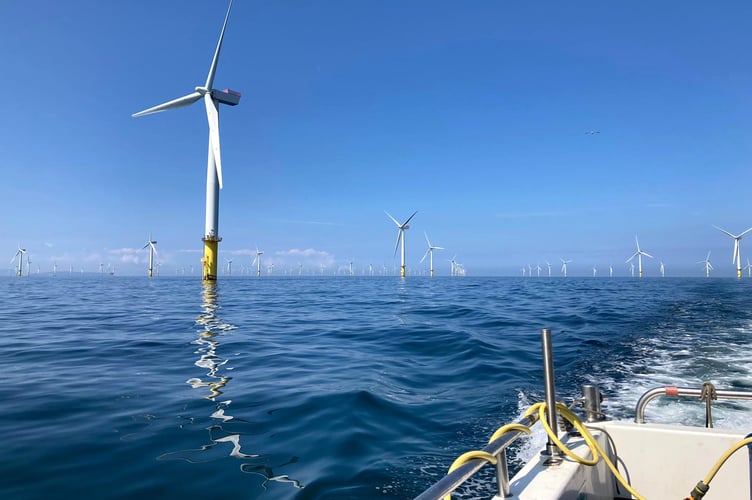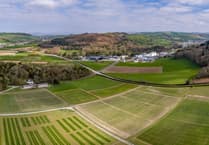As well as producing clean, renewable energy as the world comes to grips with the climate change crisis, off-shore wind farms could prove beneficial in another unlikely way, research by Aberystwyth University academics has revealed.
Aberystwyth University academics found during research that the off-shore wind farms could offer new habitats for lobsters and provide possible biodiversity benefits on the sites where they are placed.
According to the study - published in the ICES Journal of Marine Science last week - particular areas of habitat within offshore wind farms provide a “suitable living environment for lobsters.”
The new turbines within the off shore wind farms placed off the coast around the UK are believed to create a type of artificial reef, academics found.
The created ‘reef’ adds a hard substrate into areas where there was once soft sediment, the research says.
For the research, dozens of lobsters were tagged within a wind farm in the Irish sea by university academics.
Their movements within the area were then tracked.
Monitored by the academics with acoustic telemetry, the animals could be observed living close to the areas of hard substrate within the wind farms.
Common lobsters predominantly live in crevices and excavated hidey-holes amongst rocks, with the infrastructure of the off shore wind farms providing a similar habitat to natural rocky reefs.
The lobster is a common site in UK waters, and within the area off Cardigan Bay.
The data collected indicates that these areas have the potential to provide suitable habitat for lobsters.
Dr David Wilcockson from Aberystwyth University, who was one of the researchers on the project, said: “It is these kinds of rocks and boulders where lobsters normally shelter, and so these artificial reef effects we have seen are logical.
“The findings indicate that offshore wind farms could provide a suitable habitat for crustaceans.
“As well as the environmental benefits traditionally associated with wind farms, we are now seeing this as an extra biodiversity boost that should be considered by policy makers.
Harry Thatcher, a PhD student at Aberystwyth, and lead author of the study, added: “The introduction of this hard substrate could also have other potential advantages.
“By creating possible new habitats for lobsters, they could also offer sustainable fishing opportunities across Europe.
“Indeed, as some other sources disappear, this could be seen as a way of helping stocks for the fishing industry.”
The research was led by academics at Aberystwyth University, alongside researchers at Plymouth and Newcastle universities.




